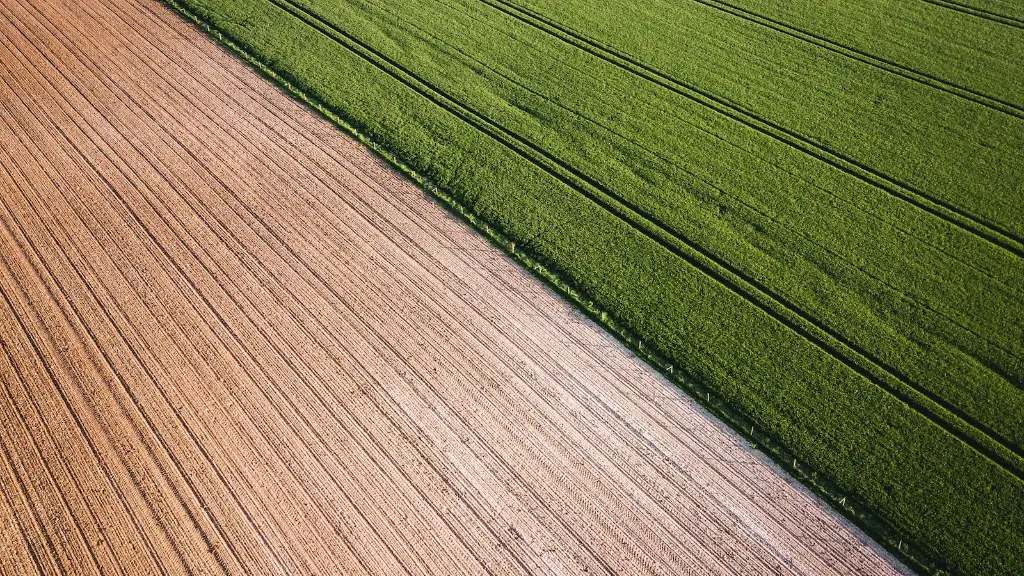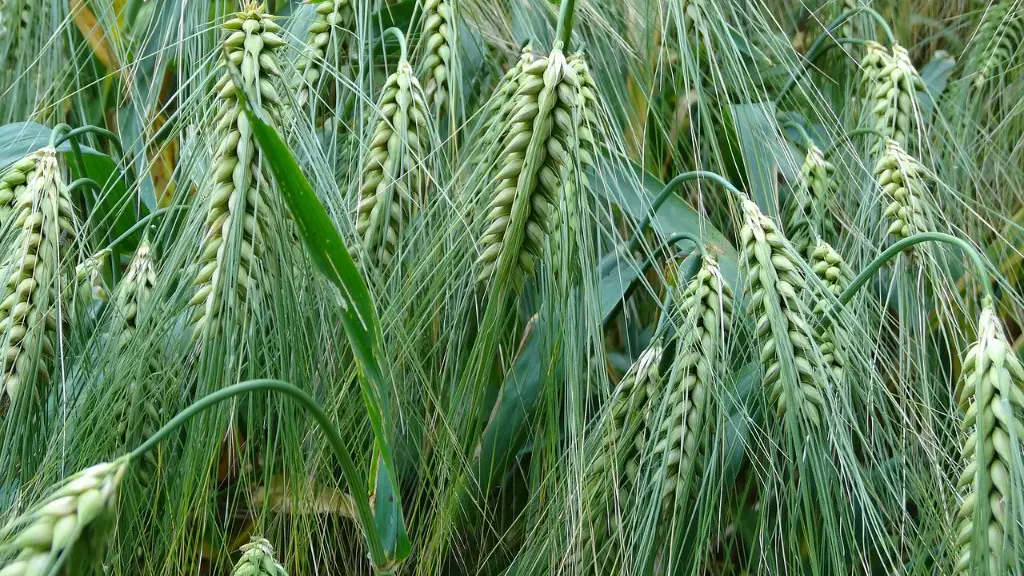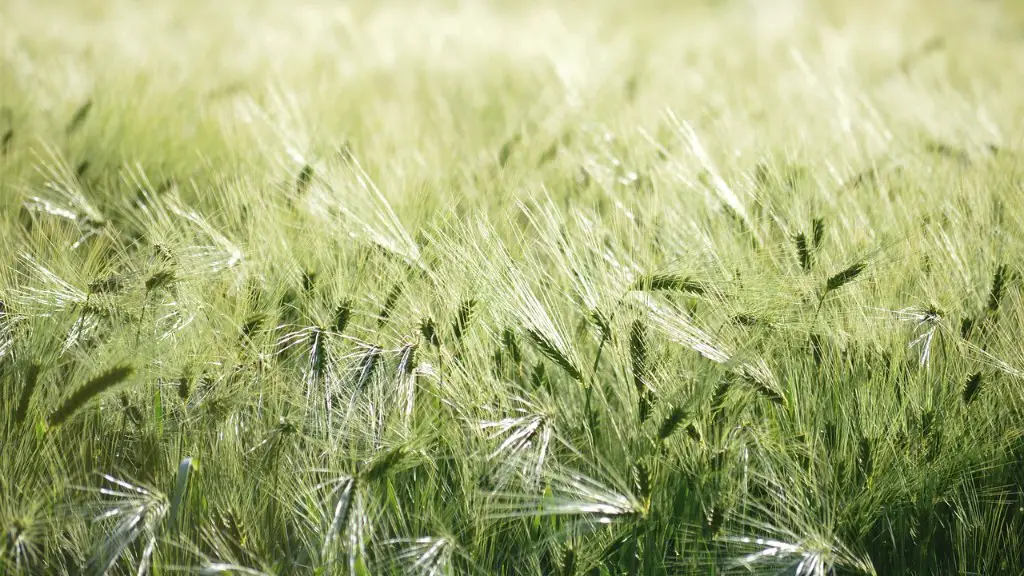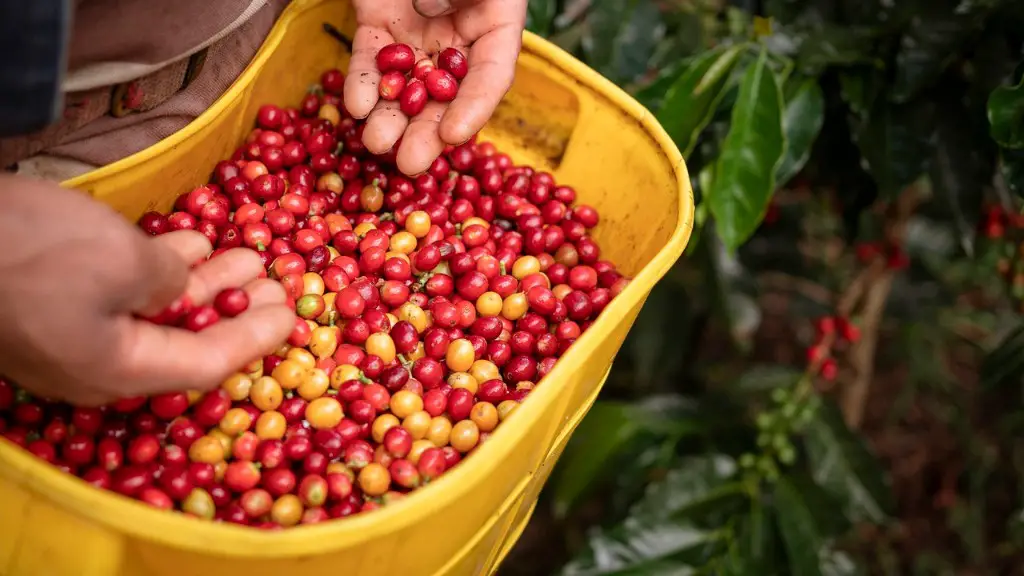Agriculture is the process of producing food, feed, fiber and other desired products by the cultivation of certain plants and the raising of domesticated animals. Agriculture was the key development in the rise of sedentary human civilization, whereby farming of domesticated species created food surpluses that allowed people to live in cities. The study of agriculture is known as agricultural science.
The advantages of agriculture are that it provides food for people and animals, it creates jobs, and it boosts the economy.
What are disadvantages of agriculture?
Agriculture is the leading source of pollution in many countries. Pesticides, fertilizers and other toxic farm chemicals can poison fresh water, marine ecosystems, air and soil. They also can remain in the environment for generations.
We need to find ways to reduce the amount of pollution that agriculture creates. This may include using less toxic chemicals, better management of farm waste, and promoting sustainable farming practices.
The main advantage of a controllable food supply is that you can ensure that there is enough food to feed the population, even in times of drought or flood. However, the disadvantage is that in order to keep up with the growing population, you have to make drastic changes to the environment, which can have negative consequences.
What are 5 advantages of agriculture
Agriculture provides many benefits for Nigeria, including the production of export crops, agro tourism, job creation, and the source of raw material for other industries. It also provides entrepreneurial and investment opportunities, economic diversification, and food security.
Agriculture is critical to society in a number of ways. It provides food for people to live, while also creating habitat and offering jobs. In addition, agriculture provides raw materials for many different products, from food to clothing. Ultimately, agriculture helps to build strong economies through trade.
What are 3 reasons why agriculture is important?
Agriculture is the main source of raw materials for many industries. It is also important to international trade and the economy of many countries. Agriculture plays a big role in a nation’s revenue and can provide employment for millions of people. It is also crucial to a country’s development and can help heal the environment.
Agriculture is an essential part of any economy and plays a critical role in the overall development of a country. It is the backbone of the economic system and provides food and raw materials, as well as employment opportunities, to a large percentage of the population. Agriculture is a vital sector of the economy and its importance should not be underestimated.
What are 3 effects of agriculture?
While the development of agriculture in a region positively affects the natural life, oxygen production and climate in the region, inorganic nitrate pollution, pesticide pollution and salinity problems can be listed as the negative effects of agriculture on the environment, especially in regions where intensive agriculture is practiced.
Farm work can provide many benefits for adults, including exercise, fresh air, opportunities for problem solving, appreciation for land and animals, and satisfaction in one’s work. Farm work can be a great way to get out of the house and get some exercise, while also enjoying the fresh air and rural scenery. problem solving skills can also be developed or strengthened when working on a farm, as there are often many obstacles and challenges that must be overcome. Additionally, working on a farm can help develop a deep appreciation for the land and animals, as well as a satisfaction in knowing that one’s work is helping to maintain a healthy and productive ecosystem.
How did agriculture benefit us
The agriculture, food, and related industries are very important to the US economy and contribute a significant amount to the gross domestic product. The output of America’s farms is a significant part of this, and the sector employs a large number of people.
Agriculture is the source of food for the world. It is essential to know how to grow crops and raise animals for food in order to feed the planet. Agricultural products like wheat, corn, vegetables, and fruits are necessary to keep people healthy and fed. Agriculture is also important for the economy. The money farmers make from selling their crops and animals helps to support their families and businesses.
What are the positive impacts of agriculture on the environment?
Agriculture can have a positive impact on the environment in many ways. For example, by helping to reduce air pollution and providing a resource-rich habitat to certain wild species. In addition, agriculture can help to conserve water resources and improve soil health.
There are many factors that contribute to crop yields, and modern agriculture has focused on improving these factors in order to achieve maximum yields. One of the most important factors is the use of fertilizers and other nutrients, which can help the plants to grow healthier and stronger. Additionally, irrigation and proper drainage are also essential for ensuring that the plants have enough water to grow. Finally, modern agricultural techniques have also focused on improving the genetic quality of crops, which can further increase yields.
Why is agriculture important 10
Agriculture is the backbone of the Indian economy and it is the largest industry in the country. It employs more than half of the workforce in the country and contributes around 15% to the GDP. The sector has been growing at a steady rate of around 4% over the past few years.
The sector has the potential to grow at a much faster rate if the right policies are in place. There is a need to increase investment in the sector, both by the government and the private sector. This will lead to more jobs and better incomes for the farmers. It will also help in improving the infrastructure and supply chain in the sector.
The sector can also play a key role in boosting the rate of capital formation in the economy. This will help in accelerating the pace of economic development.
Here are 5 quick facts about agriculture:
1. Agriculture is the single largest employer in the world.
2. There are 914 million acres of farmland just in the US.
3. The average US farmer can feed 155 people.
4. Beef farming accounts for 29% of American farms.
5. Agriculture is responsible for producing the food we eat every day.
What impact does agriculture?
Agriculture is a critical sector of the economy, but it also has a large environmental footprint. Agriculture contributes to a number of environmental issues that cause environmental degradation, including climate change, deforestation, biodiversity loss, dead zones, genetic engineering, irrigation problems, pollutants, soil degradation, and waste.
Climate change is a major global problem, and agriculture is a significant contributor. Agriculture accounts for around 10% of global greenhouse gas emissions, and the sector is expected to see significant growth in the coming years. Deforestation is another big environmental issue linked to agriculture. The conversion of forested land to agricultural land is a major driver of deforestation, and agriculture is a leading cause of deforestation in the Amazon.
Biodiversity loss is another serious problem caused by agriculture. The loss of natural habitat is a major driver of biodiversity loss, and agriculture is a leading cause of habitat loss. Dead zones are another environmental issue caused by agriculture. Dead zones are areas of the ocean where the oxygen level is so low that marine life can not survive. The main cause of dead zones is nutrient pollution from agriculture.
Genetic engineering is a controversial issue in agriculture. Agricultural biotechnology is a rapidly growing sector, and many crops are now genetically engineered. Proponents of genetic
The very poorest people in society benefit the most from agricultural growth. This is because agricultural growth increases the demand for labour, which in turn increases the likelihood of people in this group obtaining employment. Additionally, agricultural growth may also lead to increased salary levels, which would further increase the income that can be accrued from selling labour. Therefore, agricultural growth is a key factor in alleviating poverty among the very poorest in society.
Warp Up
The advantages of agriculture are many and varied, but can be broadly categorised into those relating to the environment, economy and society.
From an environmental perspective, agriculture can help to restore and improve ecosystems and combat climate change. There is a growing body of evidence to suggest that well-managed agricultural systems can play a significant role in sequestering carbon, improving soil health and water quality, and providing habitat for wildlife.
From an economic perspective, agriculture provides livelihoods for billions of people around the world and is a major contributor to global GDP. The sector is also an important source of export earnings for many developing countries.
From a social perspective, agriculture plays a vital role in providing food and nutrition for a growing world population, and offers opportunities for rural communities to diversify their incomes and build their resilience. In addition, agriculture can help to promote gender equality, as women make up a significant proportion of the agricultural workforce in many countries.
The advantages of agriculture are many and varied, but some of the most important ones are that it provides food and employment for people, it helps to conserve resources, and it can improve the quality of life for both farmers and consumers.





